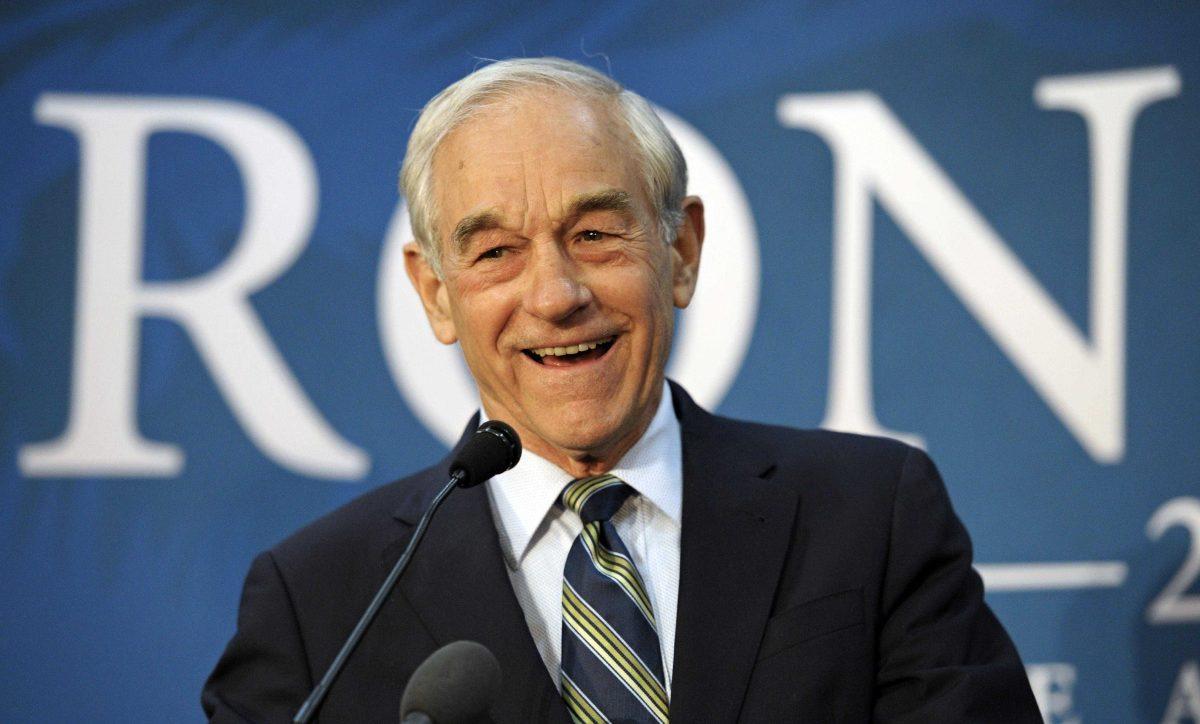Libertarianism is losing its fearless leader.
Rep. Ron Paul, R–Texas, is stepping away from politics after this year. The 77-year-old has served Texas in Congress intermittently since 1976, but he is best known for his work in spreading the ideals of libertarianism throughout the nation.
As he noted in his farewell address last week, Paul’s goals have always been “to promote peace and prosperity by a strict adherence to the principles of individual liberty,” and he has used his position and status as a Congressman to push these goals.
Paul’s presidential campaigns and college tours have been the catalyst in bringing libertarianism to the American political consciousness. Despite never being taken seriously by the media, Paul’s message has been happily embraced by many young voters around the country, and the huge crowd Paul managed to attract during his visit to LSU last year attests to this fact.
Many young Americans, including myself, were receptive to Paul’s impassioned positions against government encroachments on our civil liberties, our everlasting foreign conflicts and the disastrous and harmful war on drugs. With the GOP in turmoil, Paul’s appeal to the youth may play an important role in shaping what American conservatism becomes in the future.
However, Paul’s educational campaigns weren’t his only strength. He was also one of the most stalwart defenders of civil liberties and one of the most vocal opponents to the United States’ aggressive foreign policy in Congress.
Even in his farewell speech, Paul was quick to criticize the deterioration of our civil liberties with bills like the Patriot Act and the FISA Amendments Act, the continued use of force in the Middle East, the kill lists that can potentially include American citizens and, of course, the drug war.
He even indirectly implied that Congress was full of “psychopathic authoritarians,” which should make him at least a little awesome to everyone in America.
But Paul was one man drowned out by the righteous fervor of those “authoritarians,” and when he retires, this country will be losing one of its most important voices in the fight for civil liberties and a saner foreign policy.
Many wonder if Paul’s son, Sen. Rand Paul, R–Kentucky, will take up his father’s mantle as the libertarian voice in Congress. However, some libertarians have been put off by Rand’s endorsement of Republican presidential candidate Mitt Romney and his attempts to entrench himself in the Republican establishment. Whether libertarian-leaning Republicans will unite around Rand remains to be seen.
Former Gov. of New Mexico Gary Johnson is also a possible contender as the new leader of the libertarian movement. Johnson’s presidential campaign was the most successful in the history of the Libertarian Party, although he only won about 1 percent of the popular vote.
Yet Johnson has strengths that can’t be found in either of the Pauls.
Johnson’s support for marriage equality and abortion makes him far more attractive to younger Americans and the more socially liberal among us, allowing him to continue attracting new recruits to the libertarian movement who may have otherwise been turned away by Paul’s more socially conservative positions.
But no matter who emerges as the new leader of libertarianism, Paul’s void must be filled.
There needs to be a voice in the media or in the government that will defend civil liberties and personal liberties from the “authoritarians.”





